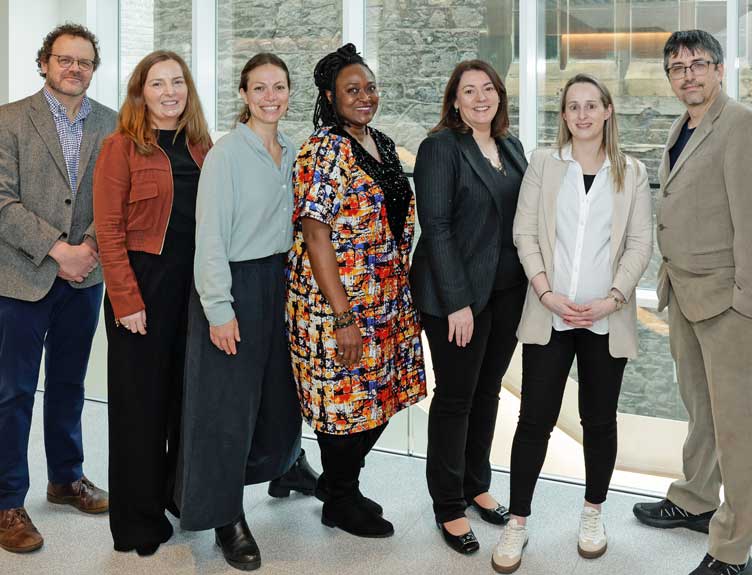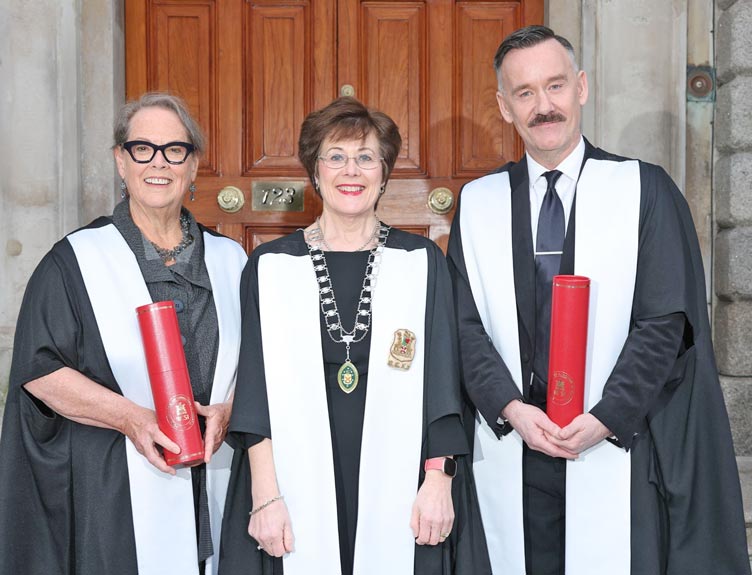RCSI study reveals €20bn healthcare cost of smoking in Ireland
A study by researchers at RCSI University of Medicine and Health Sciences calculates that current smokers in Ireland will lose almost 5 million years of life and 2.5 million years of productivity, leading to healthcare costs of around €20.2 billion.
Conducted at the RCSI School of Population Health, the research is the first of its kind in Ireland and offers a comprehensive analysis of the long-term health and societal impacts of tobacco smoking in Ireland, measured across multiple health outcomes such as life years, years with disease, productivity-adjusted life years and associated healthcare costs.
The study also estimates that current smokers will spend a combined 5.9 million years living with smoking-related chronic diseases such as COPD, lung cancer, stroke, and heart disease.
Postdoctoral researcher at Converge: Centre for Chronic Disease and Population Health Research and lead author of the study Dr Gintare Valentelyte said: “This is the first study to provide evidence on the long-term outcomes and healthcare costs for the full smoking population in Ireland. At a time when reductions in smoking prevalence have stalled and commitment to achieving the goal of a tobacco-free Ireland is at risk, this study highlights the substantial impact of tobacco smoking on health and productivity among the Irish population.”
Professor Frank Doyle, co-author of the study and Associate Professor, Department of Health Psychology, RCSI School of Population Health, commented: “Ireland is one of the first countries to commit to a national target of reducing smoking to 5% by 2025. There is an urgent need to reinvigorate the national tobacco policy discourse and refocus policymakers on achieving this goal, as this research shows the costs of inaction both in lives lost and the billions of euros it will cost our health system and economy.”
In 2023, smoking prevalence in Ireland stalled at 18%, with other EU countries varying from 8% in Sweden to 37% in Bulgaria. The data used for this analysis was based on Irish population-level statistics for 2022, following smokers aged 15 to 85. At an individual level, the greatest burden was estimated for daily smoking males aged 20 years who were expected to lose eight years of life, lose more than eight years of productivity and incur an additional €28,000 in healthcare costs over their lifetime compared to a non-smoker.
Dr Paul Kavanagh, Honorary Clinical Senior Lecturer, RCSI and Public Health Advisor to the HSE Tobacco Free Ireland Programme noted the impact of the findings: “Despite progress, smoking remains the greatest challenge facing population health in Ireland. This research shows its impact goes beyond health, with 2.5 million years of lost productivity meaning fewer people in work, reduced earnings and a smaller contribution to the economy. With reductions in smoking stalling, there is a need to strengthen proven measures like increasing tobacco taxation, accessible stop smoking support and a new Tobacco Free Ireland plan to end the health, economic and wider social harms of smoking.”
This research was funded by the HSE Tobacco Free Ireland Programme as part of a collaboration with RCSI’s School of Population Health. The research was also supported in part by a grant from Research Ireland.
The Health and Societal Burden of Tobacco Smoking in Ireland: A Life Table Modelling Study report is published in Public Health.



